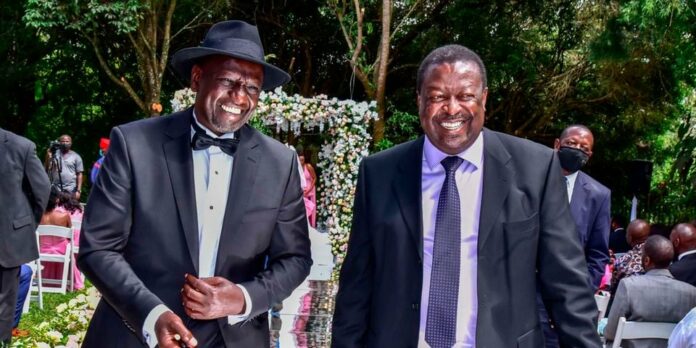In a world of mass production and fast fashion, bespoke tailoring stands out as a rare and luxurious art.
Ashok Sunny, the 32-year-old fashion designer and stylist, is at the forefront of this art in Kenya, creating masterpieces of bespoke suits for the country’s elite. From President William Ruto to top CEOs and politicians, Sunny’s bespoke suits are highly sought after for their quality and exclusivity.
But what exactly is bespoke tailoring, and why is it so highly regarded?
How Amos Muange Turned His Farm a Money-Minting Yard
According to Sunny, bespoke tailoring is the art of tailoring a garment from scratch to finish, by hand. It involves starting from scratch, taking the client’s measurements and posture, and drafting the master pattern onto brown paper using tape measure, a set square, chalk, and a keen eye.
The suit is then cut by Sunny or one of his 20 tailors, and the first basted fitting is created, allowing the client to try on the suit and make any necessary adjustments.
This process is repeated until the final product is a perfect fit, and the end result is a one-of-a-kind masterpiece that can never be replicated.
What sets bespoke tailoring apart from made-to-measure tailoring is the level of attention to detail and the use of high-quality materials. Sunny uses only the finest fabrics for his bespoke suits, shipping in wool from Italy, London, France, and Belgium.
The fabric can range from super 100 to 200 in quality, with vicuna and cashmere being the most luxurious and expensive options. A square meter of vicuna can cost up to Sh600,000, and a suit requires three meters. Cashmere can be mixed with wool, creating a garment that can cost between Sh250,000 to Sh1 million.
But according to Sunny, the investment is worth it, as bespoke suits are meant to last a lifetime and can be passed down as heirlooms.
But bespoke tailoring is not just about the materials; it’s also about the craftsmanship. Sunny and his team use age-old techniques dating back hundreds of years to create their bespoke suits, ensuring that each stitch is done by hand and every detail is perfect.
The process can take up to three to four weeks for a quality garment, and the cost can range from Sh60,000 to Sh250,000, depending on the fabric.
“Super 100 will cost Sh60,000, super 120 Sh100,000, super 130 Sh150,000 and so on. The higher the super, the lighter the fabric, and the more the garment will cost. Cashmere can be mixed with wool and the end product will cost between Sh250,000 to Sh1 million. Vicuna is the most expensive fabric in the world, which we don’t have in Kenya.” He said during an interview with Daily Nation.
Sunny’s passion for bespoke tailoring started in 2013, when he set up a stall in Nairobi’s Umoja estate with a borrowed capital of Sh20,000 from his mother. Equipped with one sewing machine and an 18-year-old rookie tailor, Sunny was the creative designer, stitching clothes for anyone who walked in.
But as he became more fashion-omniscient and his financial muscle strengthened, he narrowed down his client list, focusing only on high-end exclusive clients who appreciated the art of bespoke tailoring.
Today, Sunny is the CEO of Ashok Sunny Tailored Limited, a luxury tailoring brand that creates bespoke suits for Kenya’s elite. He has dressed President William Ruto, top CEOs and politicians, and his brand has become synonymous with quality and exclusivity.
But for Sunny, the art of bespoke tailoring is not just about dressing the elite; it’s about preserving a rare and luxurious art form that has been passed down for centuries.









